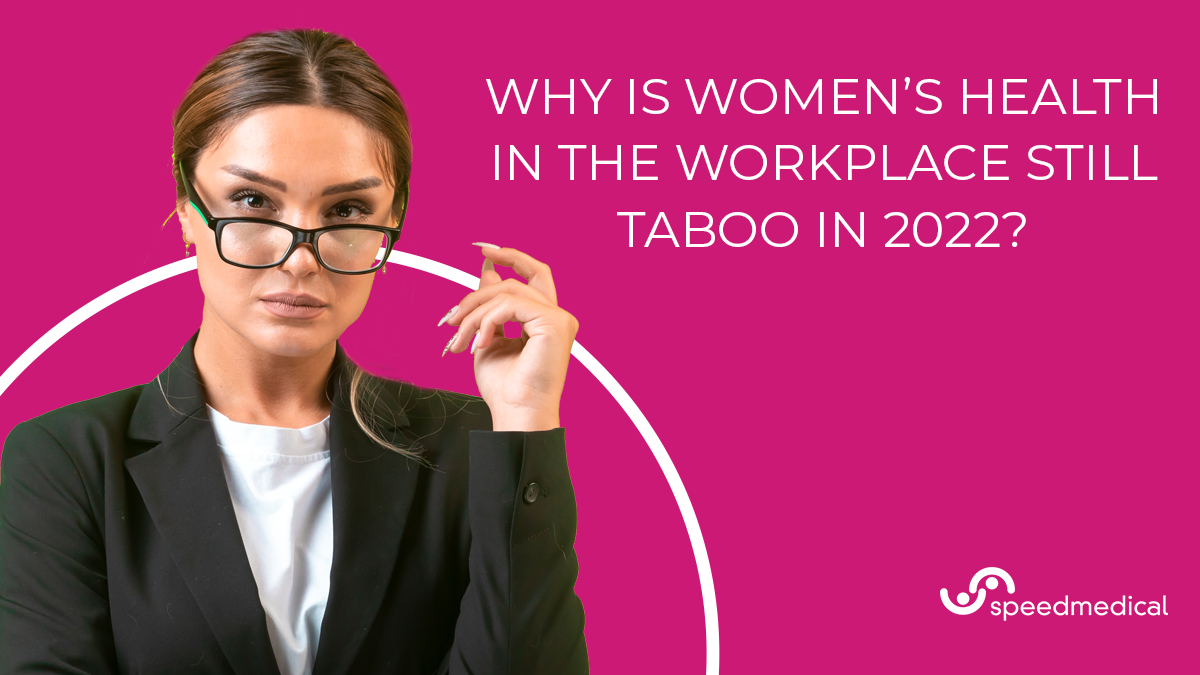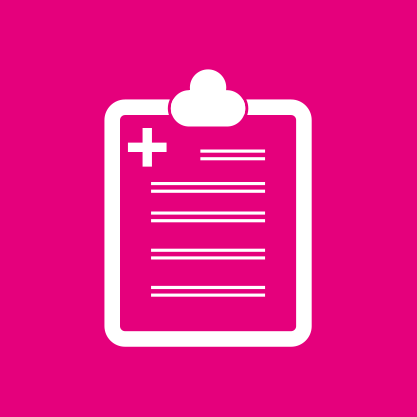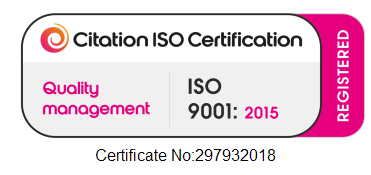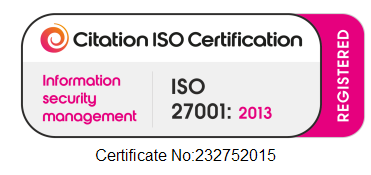

23 Mar 2022
Why is women’s health in the workplace still taboo in 2022?
In keeping with this years’ International Women’s Day theme, #BreakTheBias, we’re looking at the unique medical struggles women in the workplace deal with on a daily basis.
We’ve made great strides over the years in talking more openly at work about “taboo” subjects such as mental health, but even in 2022, some things remain behind closed doors.
For women, the workplace can sometimes be a difficult landscape to navigate; even if their minds are in their jobs 100%, their bodies can draw them back, leaving them in physical pain or experiencing severe medical symptoms.
So, let’s take a deep dive into this, and investigate how we can #BreakTheBias.
Taboo: The menopause
Whether it’s through fear, embarrassment or we’re nervous about saying the wrong thing, the menopause continues to be a challenging topic to broach in the workplace.
In a recent survey by Vodafone, 33% of employees stated that they tried to keep their menopausal symptoms hidden at work, and 50% felt there is stigma around talking about the menopause completely.
Naturally, this can have damaging effects on the individual, as being in an open and public workplace whilst experiencing menopausal symptoms can be a tremendous effort, but it also has huge implications for the recruitment market too. A Personnel Today article estimated that nearly 900,000 women in the UK left their job completely because of menopause-related symptoms.
Addressing the experiences of menopause transitions and their impact on work, wellbeing and productivity has to become a mainstream part of organisational life, and what’s more, Wellbeing of Women recently highlighted that “there should be no stigma or shame attached to menopause.”
The answer, WoW states, is that “we need more companies to come out and say, ’Okay, I understand… now, how can we help?" however, even in 2022, it seems we’ve still got far to go here, as just last week a story made BBC headlines of a woman who was unfairly dismissed from her job after her male employer shouted that "she must be on her menopause”.
Taboo: Physical and emotional period symptoms
Heavy bleeding and painful cramps can affect your productivity, and in some cases the pain may be so severe that you’re physically unable to sit behind your desk for a day.
They can also have mental implications too, as the influx of hormones can sometimes lead you to feel more irritable than normal, angry, anxious, or even sad.
With this in mind, Bupa recently conducted a survey of 2000 women to learn more about how women feel about working when they’re on their period, and the results showed that 23% of women have taken time off work because of their period in the last 6 months, with a following 36% not telling the truth about why they were unable to work.
Physical symptoms can differ so much for different women. For example, whilst some may experience nausea and painful cramps, others may be only see slight swelling and then be symptom-free within a few days. This makes it difficult for a business or organisation to understand, as it can’t be as easily defined as “being off ill.”
Bupa’s research highlights that because of this, 46% of women admitted they weren’t comfortable talking about their period as a reason for time-off, and that 58% of women under 25 tend to give the excuse of a stomach bug or flu instead.
What’s more, a recent survey from menstrual care company Yoppie has revealed that 84% of women would be in favour of a legal policy that introduced menstrual leave into UK workplaces, as currently, the law doesn’t stipulate that women who are experiencing severe menstrual symptoms can take time off work. Menstrual leave is defined as a ‘sex-specific employment policy’, and is distinct from sick leave.
“Some will argue that our general sick leave policies are sufficient to cover menstrual leave, but if a woman is having to take a day or two sick leave every month compared to the average of four or five sick days a year, employers may start to look unfavourably on them,” says Daniella Peri, founder of Yoppie.
“It’s this stigma that causes many to refrain from taking time off work when PMS hits, in fear that they won’t be treated equally against their male counterparts.”
Taboo: Female health appointments
Medical appointments are essential for businesses to accept. There should never be a circumstance where an employee feels like their health should come second to their job, and there should always be complete room and flexibility to allow medical appointments to go ahead as a matter of urgency.
However, whilst it’s not necessarily expected for employees to disclose why they need an appointment, women in the workplace often feel vulnerable when making the request.
Even for women receiving their mammogram appointment slots or smear test letters, which are lifesaving, disease-preventing, essential services, asking for time off work can still feel awkward.
In fact, Jo’s Trust recently highlighted that 1 in 5 women have opted to use annual leave to attend cervical screening, and 62% say that an increase in discussion about women’s health in the workplace would make them feel more comfortable taking time off to look after their health.
Taboo: actually speaking about taboos
If you’re an employer, it’s important to make sure everyone in your team feels supported no matter what.
For some leaders, it might not feel like a comfortable conversation to have with your female employees – for female leaders, it may feel disheartening to tell your male co-workers why you need to work from home. But our team at Speed Medical are here to help.
We’re the UK’s leading independent provider of medical reports and rehabilitation with over 24 years’ experience in delivering service excellence to our vast customer base, and we’re dedicated to being there for every staff member throughout your organisation, whether it’s in returning to work, or support with their physical symptoms.
It’s our job to lead the way, and we’re here to help you make those first steps.
Together, we can #BreakTheBias.
Contact Speed Medical today to find out more.






